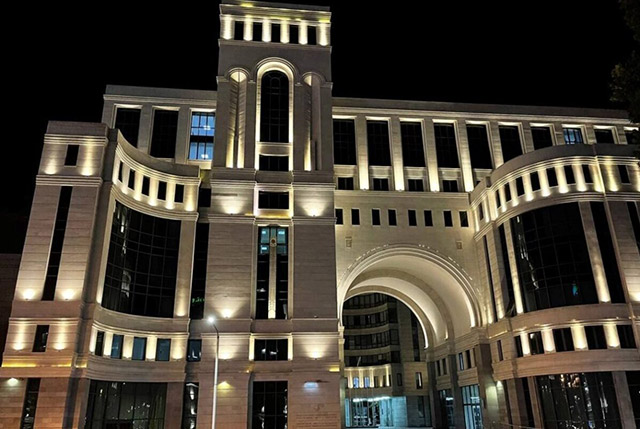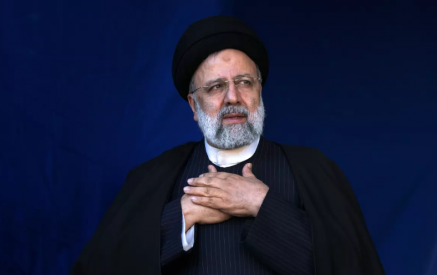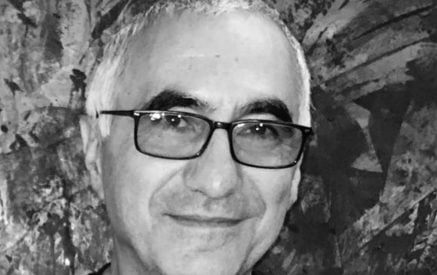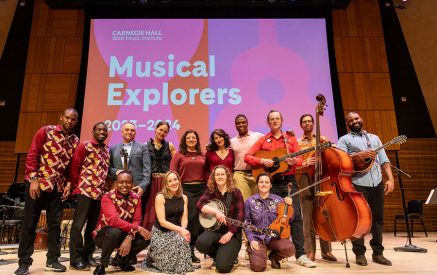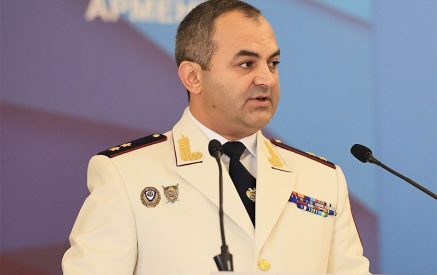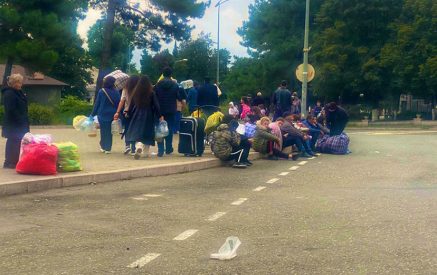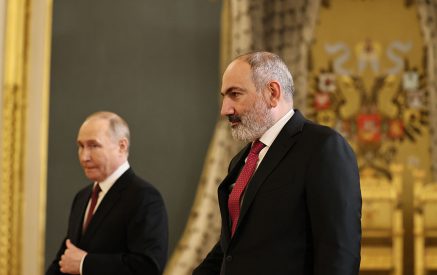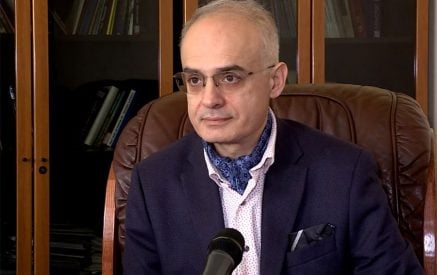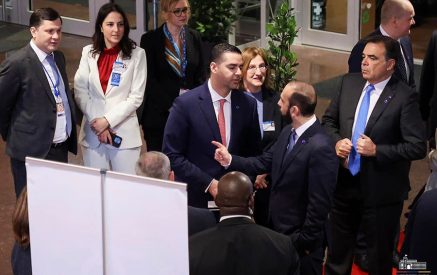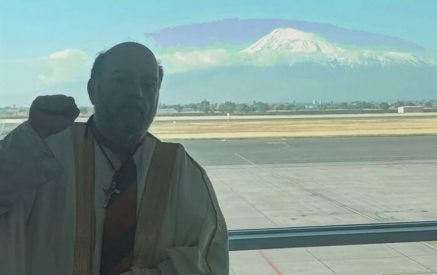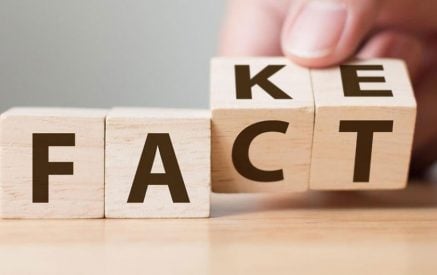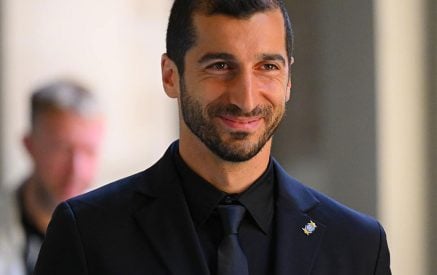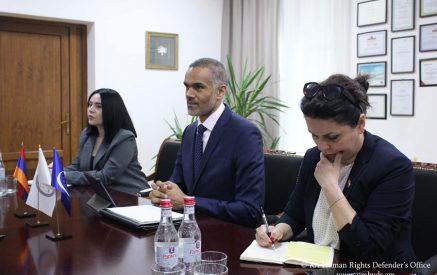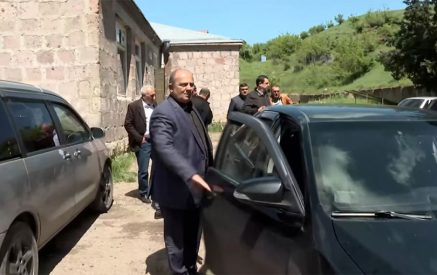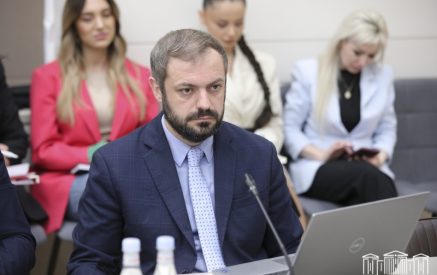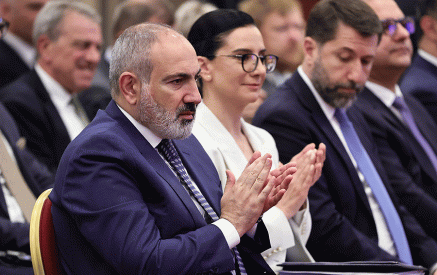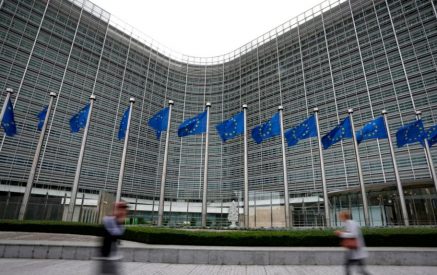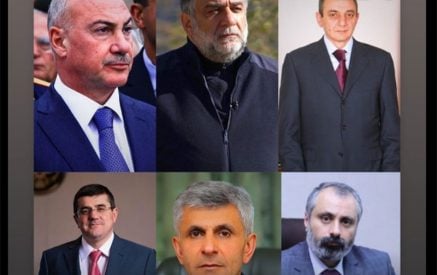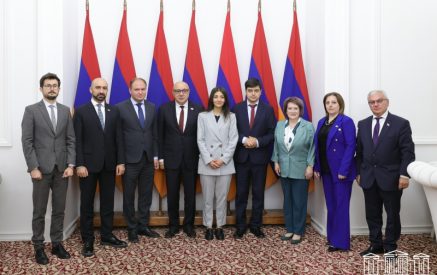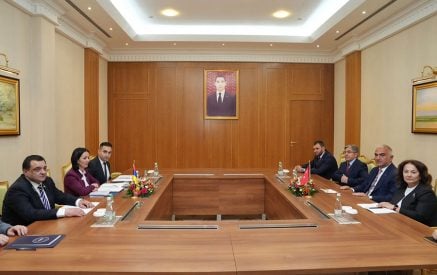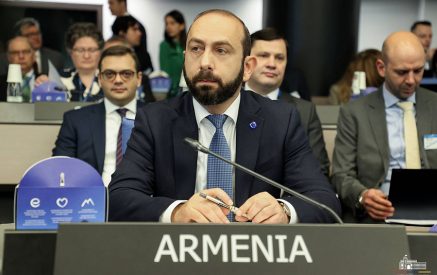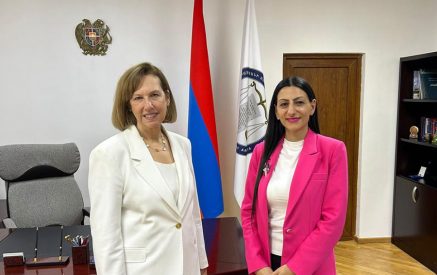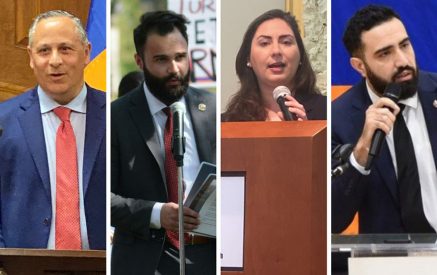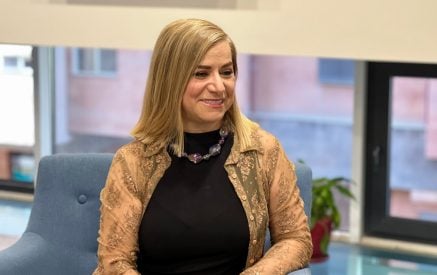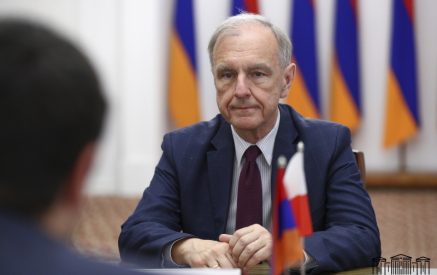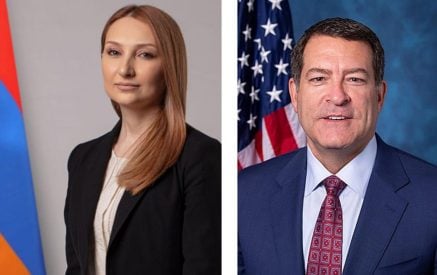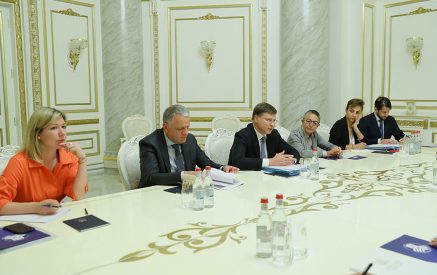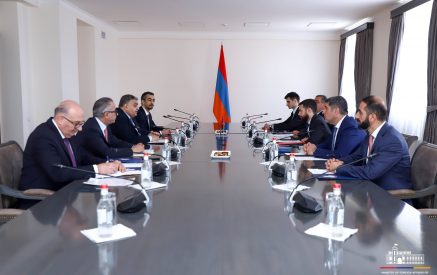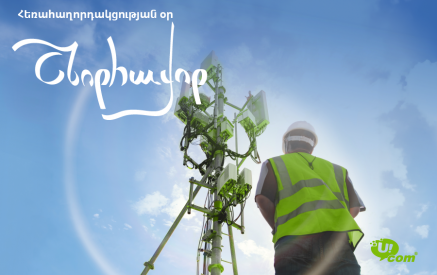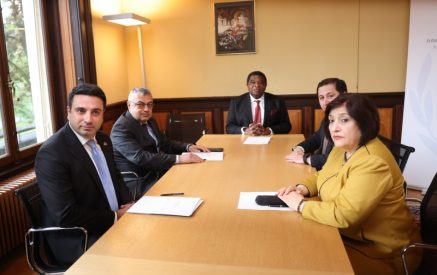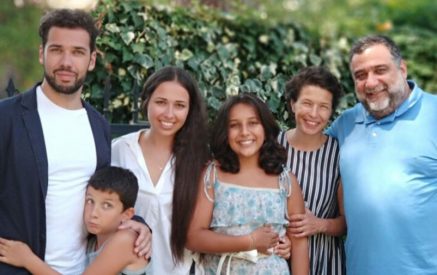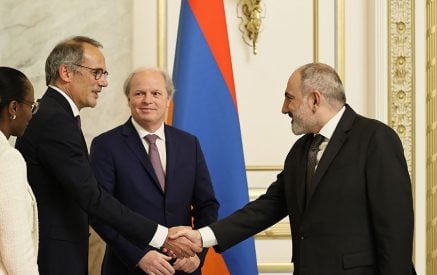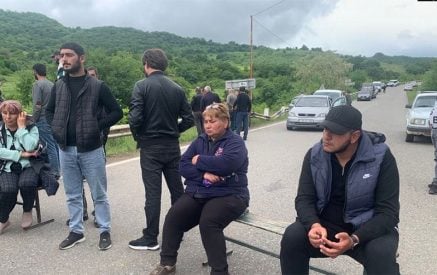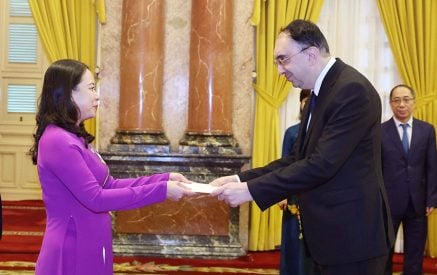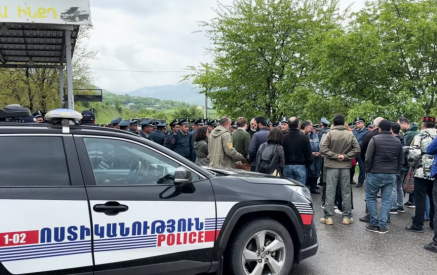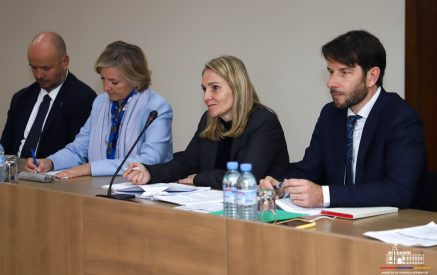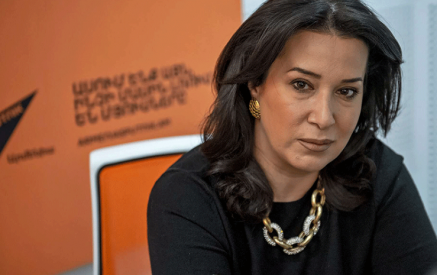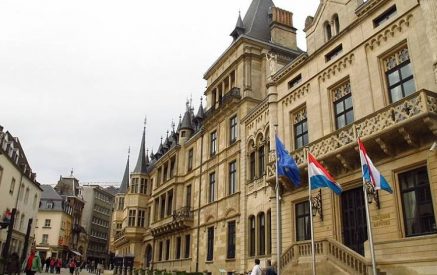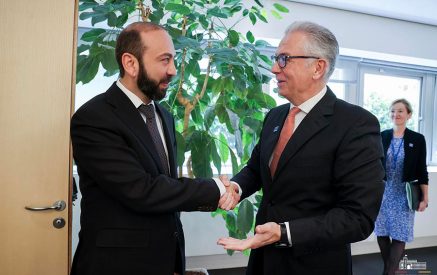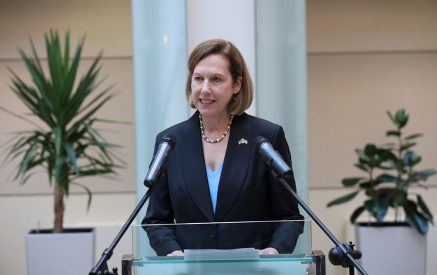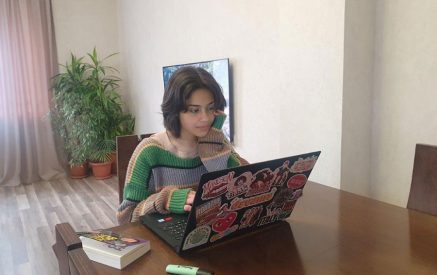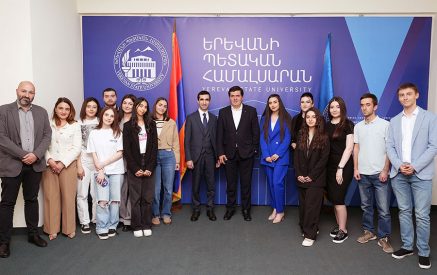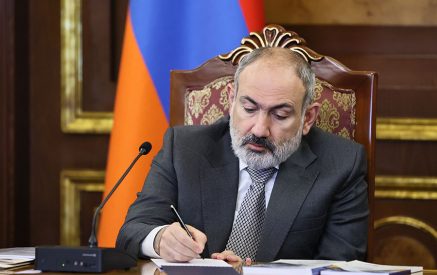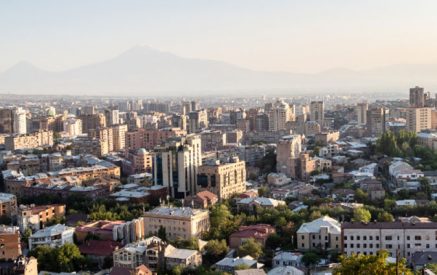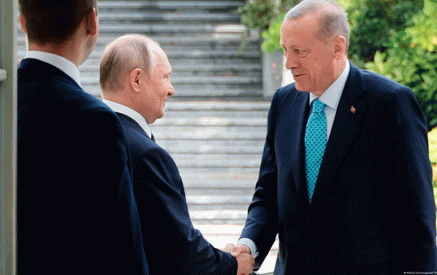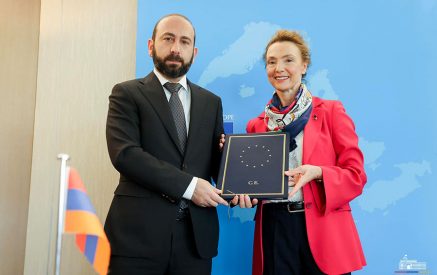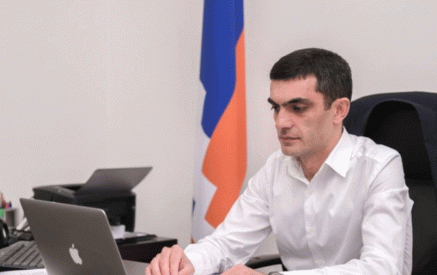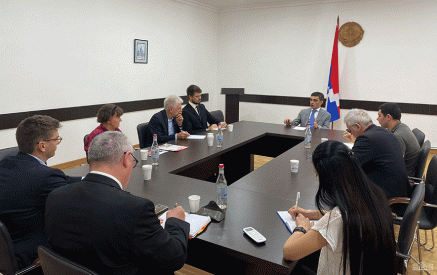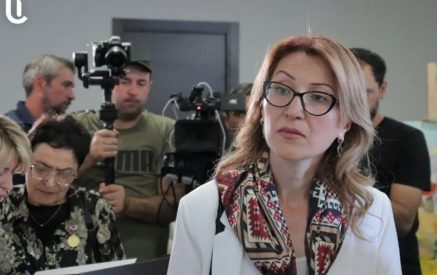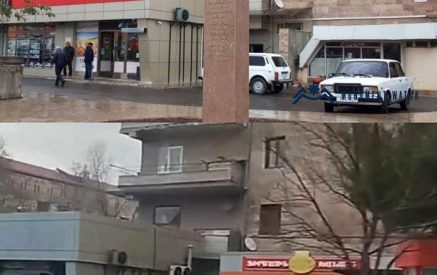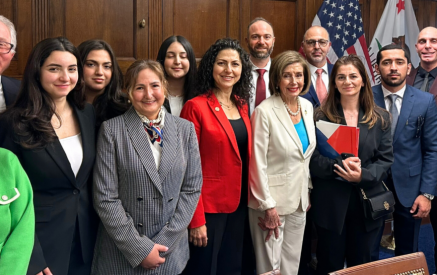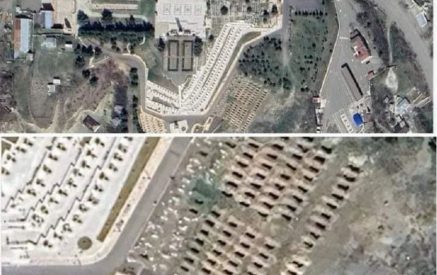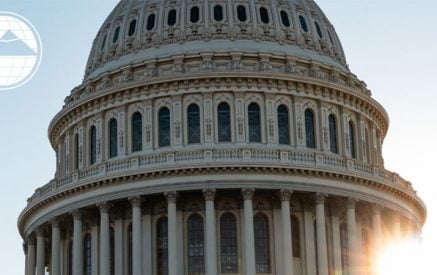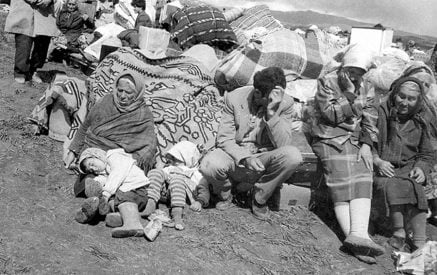Answers of Foreign Minister of the Republic of Artsakh Sergey Ghazaryan to Journalists’ Questions at the August 17 Emergency Press Conference
Question: How would you comment on the humanitarian situation in Artsakh?
Answer: As you know, the format of our today’s press conference has changed, since a few minutes ago the Azerbaijani side cut the fiber-optic cable of the Internet, disrupting Artsakh’s stable connection to the Internet, and my colleagues in Stepanakert couldn’t join the press conference.
As the Human Rights Defender of Artsakh informed, we have already a case of starving to death. We see that, unfortunately, the danger of it will become more and more serious, given our extremely limited capabilities.
Read also
At the same time, we should take into account that the lack of fuel causes very serious damage to almost all the vital spheres, including the health system, agriculture, and others.
As Mr. Ocampo noted in his report, Azerbaijan has quite deliberately chosen the act of starvation, and only if the international community takes specific steps, it will be possible to deter the Azerbaijani side.
Question: What can international structures, specifically the UN, do to prevent Azerbaijan’s genocidal policy? Is there anything you expect from the UN Security Council meetings?
Answer: The very fact that the UN Security Council addressed the situation is welcome.
Taking this opportunity, I would like to express our gratitude to the representatives of the states that have given clear wording to the policy of Azerbaijan and the illegal blockade of the Lachin Corridor. At the same time, we are concerned about the attempts by some countries to equate the Lachin Corridor to other roads and some transport communications, which is unacceptable and does not correspond to the parameters of the Lachin Corridor provided by the November 9, 2020 document.
It should be noted that convening this extraordinary meeting of the UNSC is just the beginning, and this process will continue.
In terms of capabilities, I’d like to note that the UNSC is the structure that has both the authority and mandate to prevent the genocidal policy of Azerbaijan.
Question: Would you comment in any way on the document issued by the Russian Foreign Ministry regarding Artsakh and yesterday’s statement?
Answer: As of the issue, I’d like to note that the Foreign Ministry of Artsakh did not receive such a document through official channels. The July 27 statement of the Foreign Ministry of the Republic of Artsakh touched upon the vision that envisages ensuring our rights as a national minority within the framework of the legislation of Azerbaijan.
We have clearly stated that this vision is far from the reality. This is not just our opinion, but it is testified by the realities we have on the ground. Even if any of the mediators had such hopes, then, witnessing the consequences of Azerbaijan’s policy, that is starvation of 120,000 people, the daily bellicose statements and threats of the Azerbaijani side, including the use of force, witnessing the destruction of the Armenian historical and cultural heritage, no mediator has a reason to claim that the proposals of such visions can be realized.
Question: What can the US Congress and the Department of State do to help prevent genocide and resolve this conflict? Are there specific steps that need to be taken?
Answer: I will touch on it very briefly. The United States and the UNSC, especially the permanent member states are the states that have the tools of prevention. In his August 8 message, the President of the Republic of Artsakh clearly stated our expectations. First of all, they should give a clear political assessment and legal definition to the current situation. Only after receiving such assessments and definitions the toolkit will emerge by itself, including sanctions and other types of diplomatic and political tools.
Question: Mister Ghazaryan, how would you describe negotiations between Stepanakert and Baku?
Answer: Artsakh is mostly interested to achieve the comprehensive settlement of Azerbaijani-Karabakh conflict through peace and negotiations. Certain circumstances need to be mentioned.
First, such negotiations should be held within the framework of the international format, thereby demonstrating to the concerned parties that the negotiations are proceeding in line with the norms and principles of international law.
Second, there is a need to establish explicit guarantees that the parties will fulfill their obligations, all the while acknowledging the provisions of the November 9 document, siged by the Azerbaijani President, which remains ineffective.
Regarding the proposals on convening a meeting within the jurisdiction of a third-party nation, we did indeed receive such proposals, and such a meeting was scheduled for early August. While Artsakh accepted the proposal, Azerbaijan refused of its participation, and a subsequent proposal was put forth, suggesting a meeting in Yevlakh. As you may know, however, our compatriot Vagif Khachaturyan was kidnapped by Azerbaijani forces while being transported to Armenia by the ICRC. Following this line of reasoning any meeting in the territory of Azerbaijan, particularly in the absence of international mediators or a third-party participation, is unfeasible. Let me also add that Artsakh side is consistently submitting meeting proposals via the Russian Peacekeepers, which the Azerbaijani side ignores. You may recall, that the last meeting of the kind took place on 1 March. During the meeting technical and humanitarian issues were discussed, however, there was an attempt to distort the content part by Azerbaijan and on 5 March we witnessed diversion activities. As a result, three policemen were killed, and one was injured.
Question: Yesterday, during the meeting with the diplomatic corps accredited in Azerbaijan, as well as with the representatives of international mass media, Hikmet Hajiyev, Assistant to the President of Azerbaijan on Foreign Affairs, stated that not only the Aghdam (Akna)-Stepanakert, but also the Fizuli-Shushi road had been offered or delivering humanitarian aid to Artsakh. How would you comment on this issue?
Answer: It is noteworthy to mention, that this way the illegal actions of Azerbaijan on blocking the Lachin corridor will be legitimized. Azerbaijan’s intentions are evidently aimed at disrupting the connection between Armenia and Artsakh by blocking the Lachin corridor. Second, no international aid should diminish human dignity. Therefore, if Azerbaijan has indeed created such a dire situation, deliberately subjecting 120,000 of our fellow citizens to starvation, feigned humanitarian efforts are utterly unacceptable. This is the position of both the Artsakh authorities and citizens. As you are aware, yesterday several NGOs from Artsakh raised this issue and stated it to be entirely unacceptable. Equating the Lachin Corridor with the Aghdam-Stepanakert road is not permissible.
Ministry of Foreign Affairs Government

